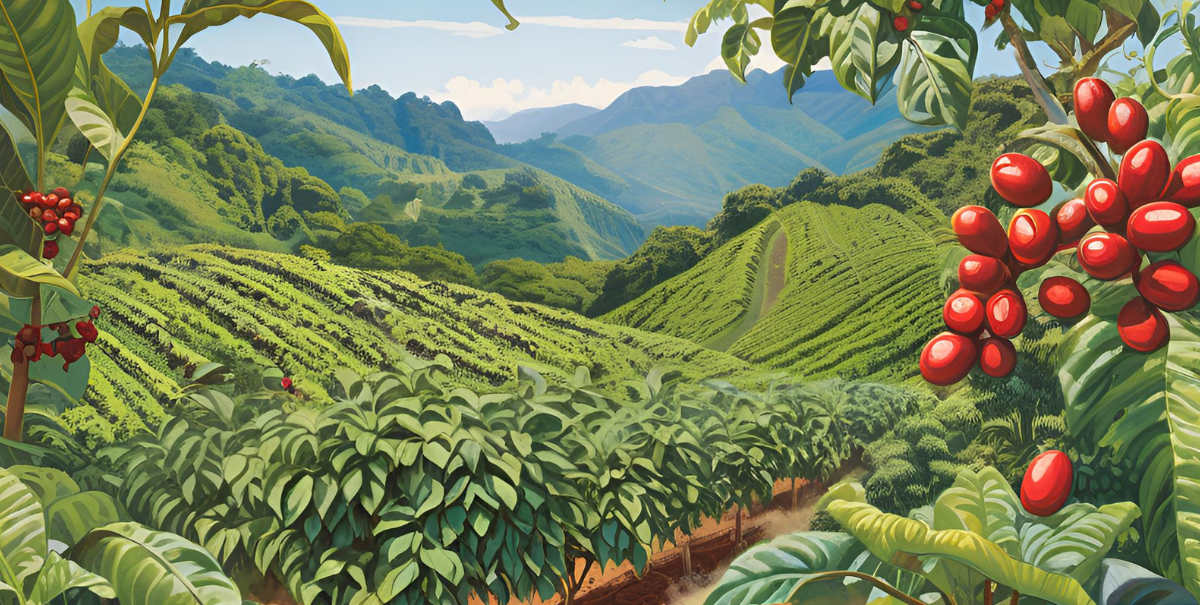Coffee is the second most-consumed beverage in the world after water, but it’s facing a climate crisis that threatens its future availability. Arabica coffee, which accounts for 70% of global production, is now endangered by climate change, with predictions indicating it may nearly disappear within the next 60 years. As arable lands for coffee—found in the “coffee belt” between tropical regions—continue to decline, experts forecast that these areas could shrink by half by 2050.
Nestlé’s Response: Developing an Innovative, Climate-Resilient Coffee Variety
In response to this threat, Nestlé has developed a new coffee variety called “Star 4.” This innovative variety is designed to withstand harsh climate conditions and coffee leaf rust, a common disease that can damage crop quality. Field trials have shown that “Star 4” achieves higher yields compared to local varieties in Brazil, while using the same resources, which ultimately reduces its carbon footprint. This development aligns with Nestlé’s sustainability strategy for resilient coffee cultivation.
Nestlé’s Nescafé 2030 Plan for Sustainable Coffee Farming
This initiative is part of the Nescafé 2030 Plan, which aims to cut coffee-related carbon emissions in half by 2030. Nestlé also aims to source 50% of its coffee crops through regenerative agricultural practices. This approach helps lessen coffee production’s impact on the environment, promoting a more sustainable and stable supply chain for the long term.
Sustainable Agricultural Practices and New Farming Techniques
According to Marcelo Buriti, Head of Green Coffee Development at Nestlé, improving agricultural practices is a critical factor in reducing coffee’s environmental footprint. Star 4 represents an example of agricultural innovation aimed at higher yields and lower emissions, a strategy that is expected to secure coffee supplies and ensure their sustainability.
Other Companies Taking Similar Steps
Nestlé is not alone in this endeavor. Starbucks is also committed to sustainability, having announced last year the development of six climate-resistant Arabica varieties. These new types of coffee are provided to farmers for free to trial. Starbucks’ Elliot Bentzen, Head of Trade, has emphasized the importance of tackling climate change, noting that the company is committed to adapting its practices to secure the future of coffee.
What This Innovation Means for the Future of Coffee
Nestlé has conducted trials of the Star 4 variety in regions such as São Paulo and Minas Gerais in partnership with the Brazilian ProCafé Foundation, and plans to introduce it to farmers on a larger scale in the near future. Star 4 is not Nestlé’s first resilient coffee variety; the company has previously developed two Robusta types—Ruby 1 and Ruby 2—which are currently being rolled out in Mexico, reflecting its ongoing commitment to sustainable coffee solutions.
These efforts represent crucial steps toward securing the future of coffee in the face of growing climate challenges. The future of coffee now relies on agricultural innovation and the development of new, resilient coffee varieties that can withstand environmental shifts. Nestlé’s Star 4 is a shining example of how the coffee industry can address the climate crisis head-on and safeguard this cherished crop for future generations.





Leave a Reply